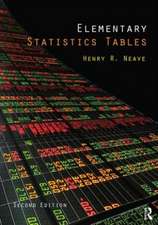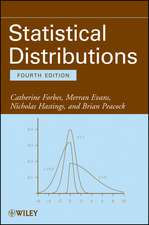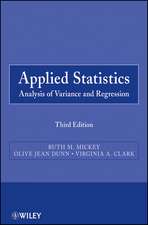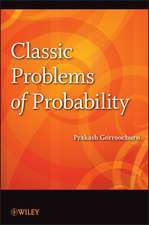Advanced Sampling Theory with Applications: How Michael’ selected’ Amy Volume I
Autor S. Singhen Limba Engleză Paperback – 14 noi 2012
Preț: 650.53 lei
Preț vechi: 813.16 lei
-20% Nou
Puncte Express: 976
Preț estimativ în valută:
124.50€ • 128.44$ • 105.37£
124.50€ • 128.44$ • 105.37£
Carte tipărită la comandă
Livrare economică 01-07 martie
Preluare comenzi: 021 569.72.76
Specificații
ISBN-13: 9789401037280
ISBN-10: 9401037280
Pagini: 1284
Ilustrații: LIV, 1219 p.
Dimensiuni: 160 x 240 x 67 mm
Ediția:Softcover reprint of the original 1st ed. 2003
Editura: SPRINGER NETHERLANDS
Colecția Springer
Locul publicării:Dordrecht, Netherlands
ISBN-10: 9401037280
Pagini: 1284
Ilustrații: LIV, 1219 p.
Dimensiuni: 160 x 240 x 67 mm
Ediția:Softcover reprint of the original 1st ed. 2003
Editura: SPRINGER NETHERLANDS
Colecția Springer
Locul publicării:Dordrecht, Netherlands
Public țintă
ResearchCuprins
Basic Concepts and Mathematical Notation.- Simple Random Sampling.- Use of Auxiliary Information: Simple Random Sampling.- Use of Auxiliary Information: Probability Proportional to Size and with Replacement (PPSWR) Sampling.- Use of Auxiliary Information: Probability Proportional to Size and Without Replacement (PPSWOR) Sampling.- Use of Auxiliary Information: Multi-Phase Sampling.- Systematic Sampling.- Stratified and Post-Stratified Sampling.- Non-Overlapping, Overlapping, Post, and Adaptive Cluster Sampling.- Multi-Stage, Successive, and Re-Sampling Strategies.- Randomized Response Sampling: Tools For Social Surveys.- Non-Response and Its Treatments.- Miscellaneous Topics.















